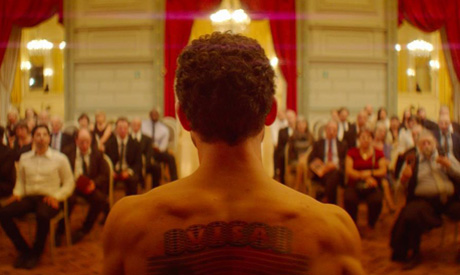In the buildup to the upcoming El Gouna Film Festival (GFF, 23-31 October), festivals all over the world including Cannes were cancelled due to the Covid-19 pandemic. Karlovy Vary, for example, was due to open on 28 April but had to be rescheduled for 2-10 July 2021.
The 77th Venice Film Festival did open live with Daniele Luchetti’s Lacci (The Ties) on 2 September, however – a cinematic miracle by many accounts – closing successfully 10 days later, even though the decision was not made until the 11th hour. The Golden Lion went to American filmmaker Chloé Zhao’s Nomadland, while the Portuguese filmmaker Ana Rocha de Sousa’s debut, Listen, a film about forced adoptions in London – selected for GFF’s narrative competition – won the Lion of the Future and the Special Orizzonti Jury Prize.
The last film event to take place in Egypt was the ninth Luxor Film Festival (6-12 March), which was stopped midway through its proceedings. Despite plans to cancel it, the 27th Cairo International Festival for Experimental Theatre (1-11 September) did take place with online seminars and no international guests physically present.
A closing ceremony at the National Theatre was attended by Minister of Culture Ines Abdel-Dayem. As for the GFF itself, it has been delayed one month, but should take place as scheduled. Plans include more open-air screenings despite plans to build a new Gouna Conference and Culture Centre (GCCC) in which to headquarter the event and host the CineGouna platform alongside most screenings.

The Man Who Sold His Skin
The fourth GFF includes the MENA premiere of Tunisian filmmaker Kaouther Ben Hania’s narrative feature The Man Who Sold His Skin.
Awarded US$10,000 from Beelink Productions through the second CineGouna SpringBoard, the film had its world premiere in the Horizon section at the 77th Venice Film Festival.
It stars Yahya Mahayni and Dea Liane, and marks Monica Bellucci’s debut in Arab cinema. It is the story of Sam Ali, a Syrian young man who flees the war hoping to join his lover in Europe, and on the way agrees to have his back tattooed by a famous contemporary artist who wants to turn his body into a work of art. Ben Hania – whose work includes Zeinab Hates the Snow (2016) and Beauty and the Dogs (2017) – won the GFF Bronze Star in the short films competition for Sheikh’s Watermelons (2018). The Man Who Sold His Skin was nominated for Best Film at the Venice Horizons Award.
Also in GFF’s narrative competition is Palestinian filmmaker Ameen Nayfeh’s 200 Meters, another CineGouna Platform project that won the Mentor Arabia prize for Children and Youth Empowerment at the inaugural round. It will have its MENA premiere here. It is the story of Mustafa, who is separated from his wife in a nearby village only 200 metres away by a wall and draconian Israeli security while their son is being admitted to hospital. Born in 1988, in addition to short films, Nayfeh has made The Eid Gift (2012), The Crossing (2017).
*A version of this article appears in print in the 17 September, 2020 edition of Al-Ahram Weekly
Short link: